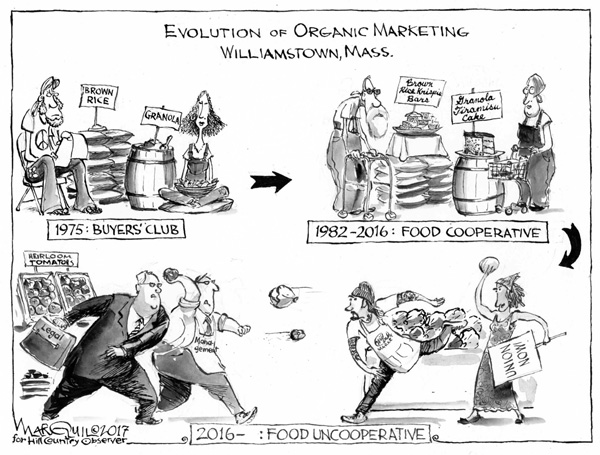Editorial August 2017
E D I T O R I A L
Disrespecting voters on Mass. pot policy
When Massachusetts voters debated last fall’s ballot question on whether to legalize marijuana for recreational use, virtually all of the state’s elected officials urged a No vote.
Republican Gov. Charlie Baker, Democratic Attorney General Maura Healey, House Speaker Robert DeLeo, eight of the state’s nine U.S. House members and all of its district attorneys spoke out against the proposal.
But voters still backed pot legalization by a margin of more than 7 percentage points statewide. In Berkshire County, Question 4 won approval in every town, and voters in 17 of the county’s municipalities – among them Williamstown, North Adams and Great Barrington -- backed it with landslide majorities of 60 percent or more.
The campaign and its results revealed a lot about the shifting attitudes toward marijuana use and drug policy in our region. A substantial majority of the public, it seems, no longer views marijuana as a threat worthy of law enforcement resources. Some even see it as beneficial, particularly for people with certain medical conditions.
But most of the state’s politicians still treat marijuana and its advocates with disdain at best. Many public officials remain heavily invested in the policy of prohibition, and they continue to recite discredited claims about marijuana – that it functions as a “gateway drug” to cocaine or heroin, for example, or that its users are somehow dangerous or more inclined to criminal behavior.
Some parts of the ballot initiative have already taken effect. Beginning in December, it became legal for adults 21 and older in Massachusetts to possess up to an ounce of marijuana in public and up to 10 ounces at home – and to grow as many as a dozen pot plants on their property.
But when it comes to legal sales of the drug, which were supposed to start in January 2018, it seems the politicians are doing their best to undermine the voter-backed law.
Last month, the state House voted overwhelmingly to rewrite the new pot law, imposing much stiffer taxes on marijuana while making it much easier for cities and towns to block retail sales within their borders.
The ballot initiative provided for state and local taxes of up to 12 percent on marijuana sales, more than enough to cover the expected cost of regulating the marijuana industry. The House bill would boost the tax to 28 percent.
And while the ballot initiative would have made local limits on retail pot sales subject to a community-wide vote, the House bill would let municipal officials sharply limit or ban retail sales without voter approval.
Both changes strike at the heart of the law by making it more likely that sales of marijuana will be driven underground – and that a criminal black market will continue to thrive.
Despite the clear statement of their constituents in the November election, three state representatives from the Berkshires – Paul Mark, D-Peru; Tricia Farley-Bouvier, D-Pittsfield; and William “Smitty” Pignatelli, D-Lenox – all voted in favor of this effort to undermine the intent of the voter-approved law.
As of late June, the state Senate had passed a much more limited set of changes that were more respectful of the intent of the voter-backed law. Negotiators for the House and Senate should choose the Senate’s language -- or leave the marijuana law alone.


